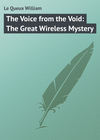Czytaj książkę: «The Sign of the Stranger», strona 12
Chapter Twenty Three
Contains a Disclosure
When the old lady had at last retired and I stood alone with my love, I moved across to draw the blind.
“Oh! do let us have some air,” she urged with a sigh. “It was so hot downstairs to-night. I feel stifled.”
This could not be, for the night air in Scotland is chilly in September. Therefore I felt convinced that she wished the bowl of flowers to remain in view of some one outside, a suspicion confirmed by her quick glance at the clock upon the mantelshelf.
For whom could that signal be intended? That it was to warn some one against calling upon her was apparent, and in an instant a great uncontrollable jealousy sprang up within me. The goddess of my admiration stood there before me calmly, her eyes fixed upon my woe-worn countenance in silence. Her lips moved at last.
“Well?” she asked. “And why have you come here, to me?”
“Because I am seeking to serve you, Lolita,” was my answer. “At Sibberton matters have assumed a very grave aspect. Richard Keene is staying there as George’s guest.”
“What?” she gasped, her face white in an instant. “Impossible! Keene as George’s friend! – never?”
“He is guest at Sibberton under the name of Smeeton. George apparently met him when hunting in Africa,” I said.
She stood regarding me, utterly bewildered, as I explained to her further the cunning manner in which the stranger Keene had introduced himself into the house.
“Then for me the future is utterly hopeless,” she exclaimed blankly, her beautiful face pale as death. “It is just as I have feared. My enemies have triumphed – and I am their victim.”
“How?”
“Richard Keene will not spare me – that I know,” she cried in desperation. “Ah! Willoughby! I cannot bear it longer. I have either to endure and be accursed here, or seek my fate and still exist the creature of the wrath hereafter. Cowardice some will call my death! But can it be coward-like to spurn the certainty I have and fly to regions unexplored? Where hope exists, life would become a stake too dear to hazard, but all with me is dreariness; and if I live existence pictures to my mind one cheerless blank; a life of condemnation and despair.” And she stood staring straight before her.
“But, Lolita!” I cried, taking her hand tenderly and gazing into her beautiful face, “you surely don’t know what you are saying. You are my love – my all in all.”
“Ah! yes,” she responded bitterly, glancing quickly at me. “Until – until they tell you the truth – only until then!”
How could I determine her meaning? How could I explore the labyrinth that surrounded her?
My brain still conjured up excuse upon excuse and warred against my better reason.
“But I don’t understand?” I said. “Why not speak more plainly – tell me everything?”
“Ah!” she sighed, her eyes fixed before her. “As I look back upon life’s stormy sea my resolution stands appalled, and I more wonder that I am than that I should be thus. Were ever woman’s trials such as mine? – or if they were, then show me that creature. Soon the busy tongue of scandal will be unfettered, and the ears of greedy calumny opened wide to swallow every breath of defamation and still add falsehood upon falsehood to blacken and condemn a helpless woman! Ah! I know,” she added. “I know what the future holds for me.”
“Then if so, why not allow me to assist you in arming against these enemies of yours and against Marigold especially?” I urged after those desperate words of hers had fallen upon me.
“Marigold! Why against her? She is my friend.”
“No, Lolita,” I responded in a low earnest tone. “She is your bitterest enemy. She knows the truth of this strange allegation against you, and she can clear you if she wishes – only she refuses.”
“Refuses! Whom has she refused?”
“Richard Keene.”
“How do you know?”
“I was present when he begged of her to tell the truth. But she only laughed, declaring her disinclination to implicate herself by so doing. That woman will let you sacrifice your life rather than tell the truth.”
“Are you certain of this? Are you positive there is no mistake, Willoughby?”
“None. I heard her with my own ears. She is awaiting eagerly your downfall.”
Lolita’s hands clenched themselves, her pale lips moved but no sound came from them. The small clock chimed ten, and as it did so she crossed the room and drew down the blind. There was, I supposed, no further necessity for the signal of the bowl of dahlias.
Ah! how crooked are the paths of life; how few the sweets; how bitter the gall! the wretched, like the daisy of the field, neglected live, nor feel the withering blast of wavering fortune. The great alone are noted, and though they weather long the pitiless storm, are struck at length and down hurled to destruction. Greatness is a dream! This world’s a dream – we wander and we know not whither.
“Are you sure that Marigold’s friendship is only assumed?” she inquired at length.
“Quite. You told me that Keene was your enemy, yet from what I have seen I believe him to be rather your friend.”
“Friend! No,” she said, shaking her head. “That’s impossible. He cannot be my friend. You do not know all the past.”
“How long ago did you know him?” I inquired. “In the days before George’s marriage. We were acquainted then,” was her faint answer.
“And the woman Lejeune? Tell me, is there any reason why he should be antagonistic towards her?” I asked, recollecting that strange incident at the farmhouse.
“Not that I’m aware of. He would be her friend, most probably. Ah! if that woman would only tell me the truth. But she will not. I know that she fears to speak lest by the truth she may herself be condemned.”
A silence fell between us. A heavy gloom had fallen over my heart; the world to me was darkness, and the contemplation of futurity a dream. And yet it was resolved; Kings reigned on earth, but I owned no other sway but love’s, no other hope but Lolita.
“And the truth,” I said very slowly and in deep earnestness. “The truth you refer to concerns Hugh Wingfield?”
The effect upon her of that name was electrical. She started, her blue eyes fixed themselves upon me with a hard, terrified look, and her lips half parted in fear were white and trembling.
“You know his name?” she gasped.
“Yes, I know the name of the dead man, the poor fellow who was so foully done to death.”
“No, no, Willoughby!” she shrieked aloud, covering her face with her hands. “Spare me, spare me that!” she sobbed.
And I saw that I had acted wrongly in recalling that fatal night. Yet if she were not guilty, why did the mere mention of the dead man’s name produce such an effect upon her?
I hastened to apologise, but her reply was —
“Ah! Willoughby! I am so doubly cursed that I can laugh to scorn all other ills of life. My cup of misery is full; one drop more and it must overflow, and life will ebb with it.”
“But can I do nothing to help you – absolutely nothing?” I demanded, looking earnestly into her eyes.
She shook her beautiful head despondently, and her breast heaved and fell in a long deep-drawn sigh.
“You saw the Frenchwoman, and you failed,” was her despairing reply. “It was the last chance afforded to me, and it is lost – lost. I know, now Richard Keene has returned, that I must suffer.”
“But if Marigold can save you from this terrible fate that threatens you, why does she refuse?”
“She has, I suppose, some motive known to her in secret,” was my love’s reply. “You know her character just as well as I do. Before her marriage there was – well, an incident. And I presume it is this which she fears that George may know.”
“But if you are aware of it, will you still conceal it though this woman is your enemy? Recollect,” I said, “that she has no love for her husband. Hers was a mere marriage of convenience.”
“Ah, yes, I know,” she said. “But would you have me condemn a woman even though she be my enemy? No, Willoughby, that is not like you. I know that revenge is never within your heart, you are always too generous.”
I regretted that I had made such a suggestion, and bowed beneath her reproachful words. Yet it somehow seemed that if she possessed the knowledge of this “incident,” whatever it was, she might hold it over her enemy as a threat, and use it as a lever to obtain the information she desired from the Countess’s lips.
“Poor George!” I exclaimed. “What, I wonder, can be the end of his life with such a woman? And yet he is so utterly infatuated by her. I threatened to speak to him regarding certain of her actions but she has openly defied me, saying that he is too deeply in love with her to hear any word of condemnation. And she’s absolutely right, I believe,” I added, sighing.
“She is right. He is more deeply in love with her than before their marriage, while on her part her open flirtations and love of admiration are little short of scandalous!” she declared.
“And yet you would protect such a woman – even though she seek your downfall?”
“The divine lesson taught us, Willoughby, is to forgive our enemies, and to allow them an opportunity for reform,” she answered calmly. “Were I to hound her down by an exposure of the past, I should myself merit neither pity nor compassion.”
“But she remains silent in order that you shall go to your ruin,” I remarked.
“Her silence may be the result of ignorance,” she suggested. “She may not really know the truth, but for some secret reason has made Keene believe she is aware of everything.”
There was something in that argument which caused me to ponder, for I recollected that her whole object had been to deceive the man who was her husband’s guest.
“But had you no suspicion that she knew the truth?” I asked.
“None whatever.”
“It seems, however, that Marigold is also in possession of some secret concerning this man Keene, for she threatened that if he revealed his real name to her husband, or sought to expose her, that she would inform the police of his whereabouts. Does that threat of hers convey anything to you?”
“Did she really say that?” ejaculated my love in blank surprise. “If she did, then it throws a new light upon the affair. She must have met the woman Lejeune, and the latter has told her certain very important facts in order to place Keene in her power. And yet,” she added, pausing, “I doubt very much if Marigold dare denounce Keene for her own sake.”
“Then she is implicated in this ugly affair as well as him?” I exclaimed quickly.
She saw that she had unintentionally revealed to me one very important fact, but having made such an assertion there was no withdrawing it, therefore she was forced to respond in the affirmative.
“Ah!” she cried desperately, gripping my hand in both hers. “You do not know, Willoughby, what conflicts wring my soul. I would barter worlds to tell you the truth, yet dare not. Because if I did so I would lose all your esteem and all your fond affection. I – I cannot live in this uncertainty,” she cried bursting into a torrent of tears. “I wander now a melancholy woman, and seem unthankful where most I should be grateful. Religion stays my hand from the self infliction of that blow which I have vainly sought within the jaws of death. Where can I go? Where can I hide my miserable self? A trackless desert would be paradise to all I suffer here. But it cannot be. I shall – I must – relieve my woes in everlasting sleep.”
“No, no,” I cried, kissing the trembling hands of my white-faced desperate love. “You must not talk like that, Lolita. You are marked down as the victim of these intriguers, but you shall not be. There is still life and love for us. Be patient, be brave – tell me the truth of the allegation against you and trust in me.”
“Tell you the truth,” she cried in a hoarse strained voice. “No, no, not to you – never. You would loathe and hate me then – you the man who now loves me.”
“Say also the man you love,” I urged tenderly, her hands still in mine.
Her lips compressed as her tearful eyes turned themselves upon me. She sighed convulsively, and then with a slight catch in her tremulous voice confessed with a sad sweet smile —
“Yes, Willoughby – the man I love.”
I clasped her in my arms. I felt the heaving of her breast, my throbbing heart kept pace with that within her bosom. My lips met hers – oh! – what a melting kiss. Love held my heart, entangling every thought.
And yet what changes in our fates must here be registered; what an accumulated scene of bliss and wretchedness must stain the pages that are to follow.
Ah! if I could at that moment have read what was written upon my love’s heart – if I could but have torn aside that veil of mystery enveloping her – if I could but have known the truth concerning that man I had found cold, stark and dead beneath the stars! How differently I would have acted.
I had thought that her love for me would induce her to tell me something of the past, yet as she stood in my embrace she was still persistent in her silence, until it seemed that she really feared lest, knowing the true facts, my affection might turn to hatred. I implored, I argued, I expressed profound regret to no avail. She would tell me nothing – absolutely nothing.
“I must suffer,” was her hard reply. “I am a woman who is the sport of circumstance. Yes,” she added, “I love you, Willoughby, but in a few hours will end my brief life of ecstasy. When I am dead – then will you know the reason why to-night my lips are sealed.”
At that instant a rap at the door caused me to release her quickly and spring aside.
A waiter who stood upon the threshold announced —
“Mr Logan, m’lady.”
Chapter Twenty Four
Introduces a Man with a History
Mention of the name of Logan placed me instantly on the alert. It was surely the man whom I had seen with her in the wood in the early hours of the morning following the tragedy – the same whom I had encountered with Mademoiselle in Chelsea – the same, I believe, who had lived in such suspicious seclusion at Hayes’s Farm.
“Tell him I am engaged at present,” exclaimed my love, facing the waiter without betraying the least anxiety. She was, of course, not aware that I knew the name of the man with whom I had seen her on that fateful morning. Therefore she affected a carelessness that utterly amazed me. Could it be that that bowl of flowers had been placed in the window as a signal to him, and that he had disregarded it and come to her?
The slightly pursed lips betrayed her annoyance at his presence, but beyond that she treated the man’s announcement with calm indifference.
Was this broad-shouldered man her accomplice – or perhaps her lover, that she should thus communicate with him in secret? How my mind struggled to be free; how my restless reason combated with my love. I tried, but could not contradict the glaring truth which impressed itself upon my soul; and yet, though I was urged to a conviction, I could not act upon the principles which subdued me.
I could learn stoicism and be the calm philosopher in every passion, save only love; but he was my divinity, and like a defenceless babe within the giant’s grasp, all struggles to evade him were but vain.
Fool that I was! poor doting fool, how had I quaffed the sweet illusions of hope only to feel the venom of despair more poignant to my soul.
“You have a caller,” I said in a hard blank voice. “Perhaps I had better leave you?”
“Oh,” she answered, “there really is no necessity for you to go. He may wait – he’s quite an unimportant person.”
“Named Logan – is he not?”
“Yes,” she replied rather faintly, with a strange smile.
“A friend of yours?”
“No, not particularly,” was her answer.
“Then if he is not, Lolita, why did I find you walking with him in the wood on that morning – I mean after the finding of the body of Hugh Wingfield?”
“You saw us?” she gasped, glaring at me aghast. “You followed us!”
“I saw you,” I repeated. “And further, I met the man on the following night in Chelsea in company with Marie Lejeune. He was flying from the police.”
“Yes, he has told me how, by your timely warning, he was saved.”
“My warning also saved the Frenchwoman. She should, therefore, in return do you the service of telling the truth, and thus clearing you.”
“Ah! She’ll never do that, as I’ve told you. It would be against her own interests.”
“But this man? Who is he?” I demanded, recollecting the confidential conversation between them before they had parted on the edge of the wood.
Both of us remembered how she had changed her wet, muddy dress at my house, and how I had succeeded in stealing a dress from her wardrobe and carrying it down to Sibberton. Yet no word of that curious incident had ever passed between us. With mutual accord we had regarded the circumstance as one that had never occurred, nevertheless, at the cloak-room at St. Pancras was a box filled with her boots, while locked away in an attic of my house was the muddy dinner-gown she had exchanged for her walking skirt on that memorable morning.
“You know his name?” she said, in response to my question.
“I do. But there are many circumstances connected with him which are puzzling,” I said. “Among them is the reason of his concealment in the house of the farmer Hayes.”
“Because he feared the police, I suppose. A watch was being kept on the house in Britten Street, you say.”
“For what reason? What was the offence of the pair?”
“They were suspected – suspected of a crime,” she replied. “But,” she added, “their guilt or their innocence does not concern me. I alone am to be the victim,” she added bitterly, pushing her hair from her brow as if its weight oppressed her.
“Then this man Logan is your enemy – eh?”
“He is not my friend.”
“He is in league with the others to encompass your ruin? Tell me the truth of this, at least.”
“I have not yet exactly decided whether he is my enemy or my friend,” was her answer. “Once he rendered me a very great service – how great I can never sufficiently acknowledge.”
“And now?” I asked, remembering that secret sign in the window.
“I am at a loss what to think,” was her response. “Sometimes I believe he is working in my interests, while at others I entertain a vague suspicion that he is my enemy.”
“As he is Marie Lejeune’s,” I added, looking her straight in the face.
“Her enemy – why, he’s her best friend. Their interests are identical.”
“I think not,” was my calm reply. And in a few brief sentences I related to her what had transpired at the lonely Northamptonshire farm, how a murderous attack had been made upon “Miss Alice,” as she was there called, and how the whole of the mysterious party had afterwards made good their escape from the neighbourhood.
“This is certainly surprising to me,” she declared. “Whom do you suppose attacked her?”
“Pink’s idea is that it was Logan.”
“But Pink surely knows nothing about my connexion with those people?” she exclaimed apprehensively.
“Nothing. Up to the present there is no suspicion whatsoever that you were acquainted with the dead man. Indeed his name is still unknown.”
I recollected how the young fellow wore her portrait in his ring, and fell to wondering again if he were actually her secret lover, and if he had been the victim of another’s jealousy.
She certainly escaped from the Hall that night and met some one in the park – but whom was an utter mystery. Yet there still sounded in my ears that scream I had heard – the scream that was certainly hers and which came from the scene of the tragedy. If she were not the actual assassin, then she had of a certainty borne witness of it – and had been appalled by that terrible dénouement.
But when a man loves a woman as I loved Lolita, he cannot openly charge her with being a murderess. And yet how I longed and longed for strength to drive the demon suspicion from me; that fiend that sat hovering over my soul, affrighting every gleam that might afford me comfort.
“Then you have been loyal to me, Willoughby. You have kept your promise!” she exclaimed with a sad sweetness. “Would that you could rescue me from the cruel fate that must now be mine!”
I strove to speak, but utterance was denied me. She seemed so convinced of the hopelessness of the future that her very conviction seemed to carry upon it evidence of her guilt.
Could poor Hugh Wingfield, the man who had carried that secret cipher in his pocket and who had worn her portrait on his finger, have actually been struck down by that very hand that I had kissed?
Ah! no! Perish such a thought. She was my love – and my love was, I knew full well, the innocent victim of as foul and base a conspiracy as had ever been conceived by the ingenious mind of man.
I doubted her, but only on account of the character of the persons with whom she was in secret association. When I enumerated them in my mind I saw what a strange mysterious group they were – the young Frenchwoman, the man Logan, the two sallow-faced foreigners who had been diligent readers of socialistic newspapers, and, last of all, the rough-mannered hunter of big game, Smeeton, alias Keene – the man over whom the young Countess of Stanchester appeared to possess some secret power.
Was Marigold the evil genius of the situation? Her past had been so full of adventure, and the rumours about her – mostly untrue be it said – had been so many that I confess I felt inclined to prejudge and condemn her.
A vain, pretty married woman, fond of admiration and moving in the ultra-smart set, can seldom escape the evil tongue of gossip. Yet although I made every allowance for her social surroundings and the fact of her being one of “the giddy Gordons,” there were certain facts of my own knowledge with which I could not well reconcile her position as my friend’s wife. For that reason, as well as because of her open declaration of antagonism to Keene, I held her in suspicion. She had cleverly deceived me as to her real motive, and that was sufficient to cause me to regard her as an enemy.
“Why not admit this man Logan and let us consult together?” I suggested at last. “We might arrive at some way out of this deadly peril of yours.”
“We might,” she admitted. “But he would never meet and discuss the matter with you. Remember he is wanted by the police, and has no guarantee that you might not betray him. He told me of your meeting in Chelsea, how you raised the alarm, and how narrowly he escaped being captured. Therefore he views you with no great affection. No,” she added, “for the present you must not meet. It would be unwise. He must not even know that you axe in Edinburgh.”
“Why not?”
“Because – well, because if he knows you are here with me he will hesitate to act in the manner I am trying to induce him to act. Fear of you will prevent him.”
“What are you inducing him to do?” I asked.
“I am trying to prevail upon him to assist me in performing a certain service – one by which I hope to gain my release from these torturing fears that hold me. It is my last resource. If my project fails, death alone remains to me.”
She spoke with a deep breathless earnestness which told me plainly that her words were no idle ones. True she had spoken of self-destruction many times, but it was with the firm conviction of a woman hounded to her own destruction.
The world, curiously enough, regards a wealthy woman of title as though she were a different being to themselves, believing her to possess attributes denied to the commoner, and a mind devoid of any of the cares of the weary workaday existence. Yet if the truth be told, the woman who is dressed by Laferrier, Raudnitz or Callot often has a far uglier skeleton in her cupboard than she who is compelled to go bargain-hunting in Oxford Street at sales for her next season’s gown. The smart victoria, the matched pair, the liveried servants and the emblazoned panels form the necessary background of the woman who is chic, but, alas! how often she hates the very sight of all that hollow show of wealth and superiority, and how she longs for the quiet of obscurity. How very true it is that wealth does not bring happiness; that there is no pleasure in this world without the gall of pain, that love finds sanctuary in the heart of the princess just as it does in that of the factory-girl. There is no peace on this side of eternity, therefore we must forever court the illusions which evade us.
What could I say? If it were to her interest to see this man alone – this man of whom the police were in such active search – then to serve her I ought not to object. I felt indignant that my well-beloved should be polluted by the presence of such an adventurer, and yet I recollected how they had walked together in the wood, and what was more – that the man must be aware of her secret, whatever it was! He had walked and spoken to her; he had seen her, her white dress of the previous night wet, mud-stained and bedraggled – he must know, or at least guess, the truth!
Did she hold him in fear on that account? Was she beneath the thrall of this adventurer?
For a long time we stood talking, until as though in fear that the man whose call had been so unwelcome and disturbing should grow tired of waiting in the hall below, she urged me gently to take leave of her.
“Go, Willoughby – for my sake – do!” she implored of me with those soft pleading blue eyes that were so resistless. “Let me see him alone. Let me do this – if – if you wish to save me,” she urged.
And I saw by her pale anxious face that she was desperate.
Therefore I kissed her once again with fondness, and assuring her of my trust and love, left her, promising to return next morning.
Yes, I foolishly left her to the threats and insults of that man who knew her secret.
Ah! Had I only known the truth!




















